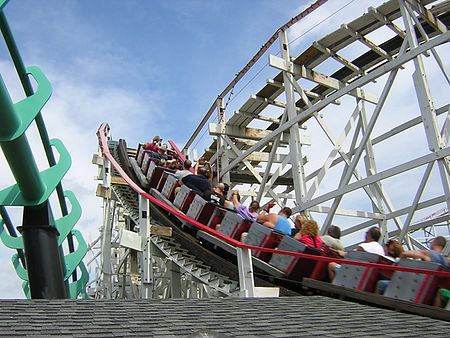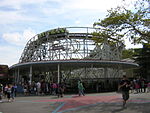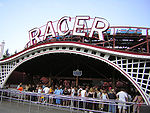Thunderbolt (Kennywood)
KennywoodOperating roller coastersRoller coasters introduced in 1968Use mdy dates from September 2022Wooden roller coasters

Thunderbolt, previously known as Pippin, is a wooden roller coaster located at Kennywood amusement park near Pittsburgh in West Mifflin, Pennsylvania. It was originally built and designed by John A. Miller and opened in 1924. It was later renovated for the 1968 season, which involved a major track expansion designed by Andy Vettel. It reopened to the public as Thunderbolt. It is partially known for being one of the few rides at Kennywood to require a partner.
Excerpt from the Wikipedia article Thunderbolt (Kennywood) (License: CC BY-SA 3.0, Authors, Images).Thunderbolt (Kennywood)
Kennywood Boulevard,
Geographical coordinates (GPS) Address Website Nearby Places Show on map
Geographical coordinates (GPS)
| Latitude | Longitude |
|---|---|
| N 40.388888888889 ° | E -79.865 ° |
Address
Kennywood Park
Kennywood Boulevard 4800
15122
Pennsylvania, United States
Open on Google Maps









